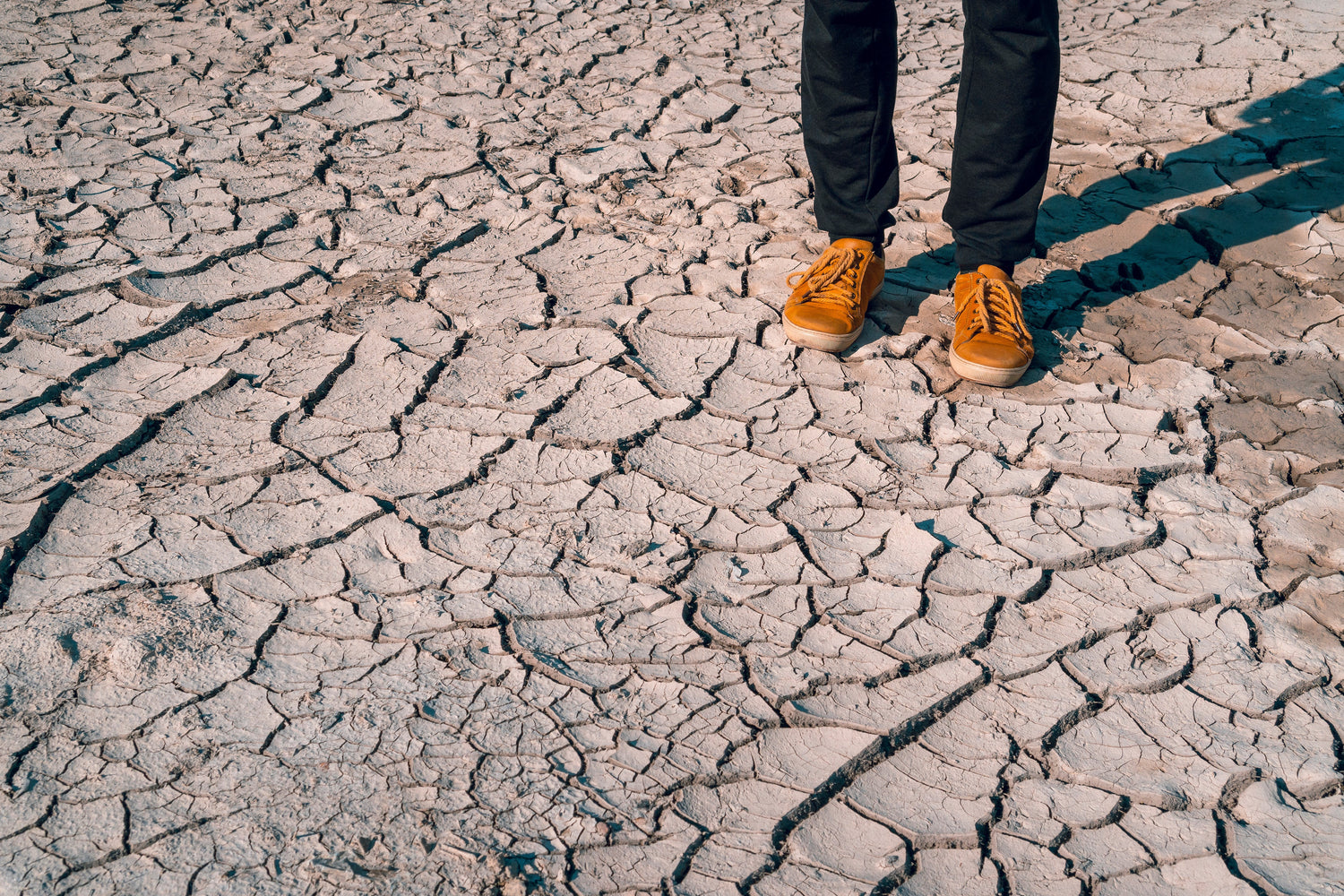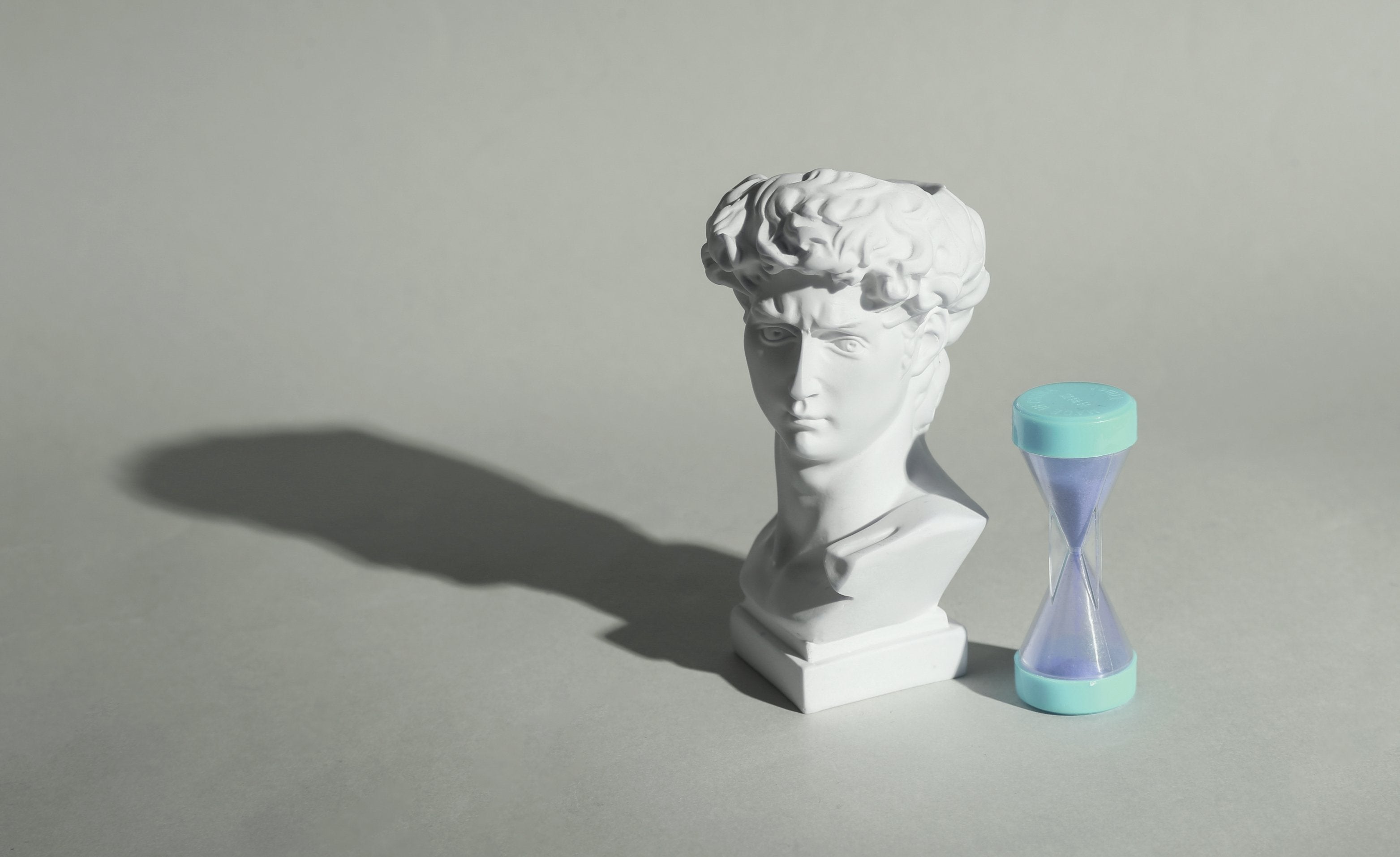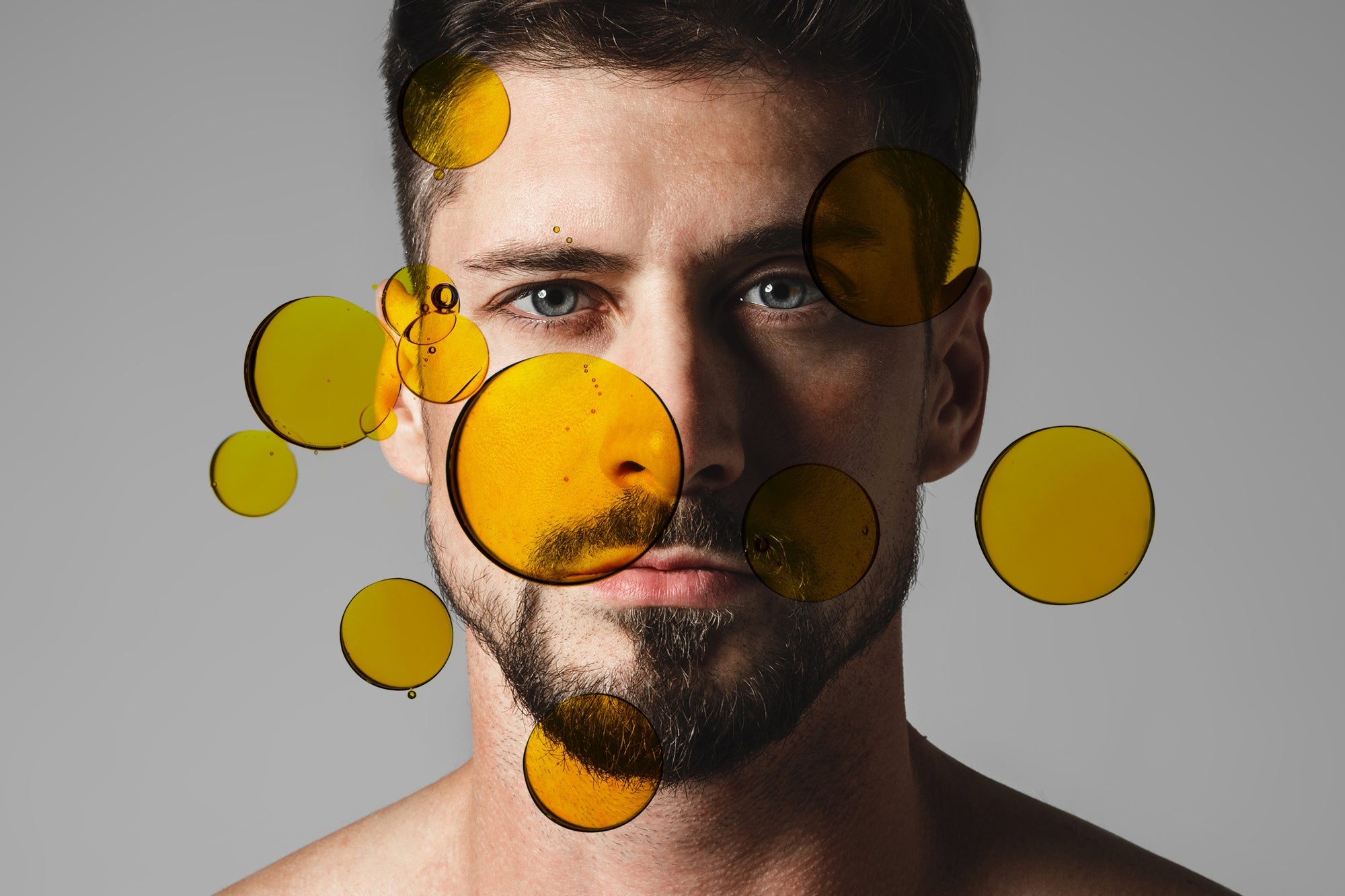Have you ever spent a day adventuring in high altitudes only to find that when you get home, your skin is dryer than the Sahara Desert? To combat this, a hot shower with your favorite bar soap may sound like the perfect antidote for your skin-related drought. But while these things seem like a cure-all for men’s dry skin, they’re actually strenuous and can worsen symptoms.
To help you better understand men’s dry skin and why it happens, we’ve created a guide that’ll make navigating life and face care with dry skin easier than the adventures you tackle regularly:
What Can Cause Men’s Dry Skin?

Similar to how guzzling a few bottles of water can make you feel lively and ready to take on anything, getting plenty of nutrients and fatty oils topically through your skin can help it and its restoration process thrive healthily.
Curious about what can cause men’s dry skin? Here are the details:
- Environmental Factors: Exposure to harsh weather conditions (think cold, dry air, or excessive heat) can strip your skin of its natural moisture, leading to dryness.
- Hot Showers and Baths: Taking long, hot showers and/or baths can remove your skin's natural oils (these are vital to your skin’s health!), resulting in dry skin.
- Harsh Soaps and Cleansers: Using bar soaps or cleansers that have harsh chemicals can strip your skin of its natural oils and disrupt its moisture balance.
- Aging: As you age, your skin's ability to retain moisture decreases, leading to drier skin.
- Dehydration: Not drinking enough water can dehydrate your body, which also affects your skin and may contribute to dryness.
- Skin Conditions: Certain skin conditions like eczema, psoriasis, and/or dermatitis can cause dry patches, itching, and overall dryness.
- Irritants and Allergens: Exposure to irritants such as chemicals, detergents, and/or allergens can lead to dry and irritated skin.
- Shaving: Frequent shaving can strip your skin of its natural oils and cause dryness, especially if not followed up with a good-quality moisturizer or serum.

Symptoms of Men’s Dry Skin
Dry skin is different for everyone; some may experience symptoms severely, while others barely notice a difference in their skin. Here are some common symptoms connected to men’s dry skin:
- Roughness
- Tightness
- Itching
- Flaking or Peeling
- Scaling
- Redness
- Fine Lines and Cracks
- Dull Complexion
- Sensitivity
It's important to remember that these symptoms can also be a sign of other skin conditions and/or underlying health issues. If you experience severe dry skin symptoms, reach out to your doctor or dermatologist for a proper diagnosis and treatment.
Dry vs. Dehydrated Skin
Did you know there’s a difference between dry and dehydrated skin? While men’s dry skin refers to a skin type (like normal and oily), dehydrated skin is a condition. According to Renée Rouleau, a celebrity esthetician based in Austin, TX, “Dry skin lacks oil, can be a result of genetics, and appears flaky and rough. Dehydrated skin lacks water and appears dull and tight.”

Rouleau explains that dry skin doesn’t produce any sebum or oil. “Since there’s no oil to enlarge the follicles or breed bacteria, dry skin types have small pores and never break out,” she says. “The skin relies on oil to hold moisture. Without it, your complexion may look rough and flaky, and wrinkles might appear more pronounced.”
Pictured: Men's Dry Skin vs. Dehydrated Skin | Source: Raw Beauty
Types of Men’s Dry Skin
Typical Dry Skin


Pictured: Typical Dry Skin | Source: Tiege Hanley
Typical dry skin can appear on the areas of your body that are hard to get to like your back. It can be treated with moisturizers that increase the moisture of your skin while creating a barrier for protection. The most common cause of this type of dry skin is the weather. For example, Colorado’s dry winter mixed with its wind, low humidity, and high altitude can cause your skin to lose moisture, leaving you with a dry, weathered appearance.
Keratosis Pilaris


Pictured: Keratosis Pilaris | Source: Healthline
Keratosis pilaris – a common (and genetic) form of men’s dry skin – appears as small bumps on the back of your arms and the top of your thighs. The bumps are usually around 1 mm in diameter and aren’t itchy. Doctors recommend treating this form of dry skin with over-the-counter creams and lipid-rich skincare that has strong, natural ingredients.
Eczema


Pictured: Eczema | Source: Everyday Health
When it comes to men’s dry skin and eczema, the statistics are eye-opening: Eczema is common and affects more than 31 million Americans; infants are also prone to eczema, and 10 to 20% likely have it. Atopic dermatitis – sometimes called true eczema – is a condition where your skin doesn’t hold on to moisture well.
While many people outgrow atopic dermatitis, a small percentage of people live with the condition well into adulthood. It’s related to allergies, keratosis pilaris (mentioned above), and may be genetic. If you’ve experienced atopic dermatitis then you’ve likely been treated by a team of doctors that includes a dermatologist, pediatrician, and allergist.
Irritant Dermatitis


Pictured: Irritant Dermatitis | Source: Healthline
Irritant dermatitis is exactly what it sounds like – a rash originating from an irritation. It can cause cracks and fissures on your skin and is common in those who work with their hands. Irritant dermatitis happens when your skin is irritated by chemicals, friction, solvents, or harsh soaps because they remove natural skin oils that protect your barrier function.
You may notice irritant dermatitis on your thigh or armpit area from clothing rubbing up against your skin. It can be treated by finding out what the irritant is and avoiding contact with it, along with rehydrating your skin barrier and protecting yourself from further irritation. Sometimes, irritant dermatitis can be severe enough to warrant a prescription from your doctor.

Is There a Link Between Men’s Dry Skin and Acne?

Did you know there’s a link between men’s dry skin and acne? While acne is usually associated with oily skin, it’s possible that those with dry skin may experience it, too. For example, dry skin can trigger your sebaceous glands to produce more oil to compensate for the lack of moisture. This can cause clogged pores and acne breakouts.

If you’re using certain acne medications (like topical retinoids or benzoyl peroxide), dryness and irritation could also become an issue. This dryness can contribute to the development of acne or make existing acne symptoms worse. An impaired skin barrier can also be the culprit for dry skin causing acne as a weakened barrier is prone to bacterial infections and inflammation.

Say it with me, fellas: Face care is important for not only your looks, but the health of your skin. If you have skin that's accompanied by acne then you may be using skincare products that are too harsh or drying. Using gentle, non-comedogenic products can help hydrate your skin while keeping its moisture content in balance (which means healthy skin and no acne!).
How to Prevent Men’s Dry Skin
While dry skin may accompany you on all of your adventures, we promise that it isn’t the end of the world and can be tackled head-on. Here are some tips and tricks to help you combat men’s dry skin for a healthy look no matter the environment or climate you’re venturing through:
- Use a Gentle Cleanser: Go for mild cleansers that won't strip away the natural oils from your skin. Try to keep away from bar soaps and make sure to use products that are geared for your specific skin type.
- Moisturize Regularly: Not sure how to use a moisturizer? After washing your face or showering, apply moisturizer to your face and neck to lock in hydration. Look for moisturizers with hydrating ingredients like hyaluronic acid and glycerin.
- Protect Your Skin From Harsh Elements: During cold or dry weather, shield your skin with a scarf, hat, or gloves. In hot weather, use sunscreen to protect your skin from sun damage and apply a lightweight moisturizer to combat moisture loss.
- Avoid Hot Showers And/or Baths: The rumors are true: Hot water can strip your skin's natural oils and lead to dryness. Instead of hot water, go for lukewarm water and limit your shower or bath time to 10-15 minutes.
- Shave Carefully: Use a sharp razor and moisturizing shaving cream (more on this in the section below) to minimize skin irritation. Shave in the direction of your hair growth and moisturize immediately after for a healthy, smooth look.
- Stay Hydrated: You’re probably well aware that drinking water is vital for your health. But did you know it also impacts your skin? Drinking the right amount of water throughout the day can help you maintain hydration from within.
Say Goodbye to Men’s Dry Skin and Hello to MOX

At MOX, we know that taking care of your skin with good-quality face care is crucial to a moisturized, young-looking appearance. Our products are formulated by Pharmacist and Nutritionist Ben Fuchs, who uses his expertise to infuse each MOX product with vitamins, minerals, and other good-for-you ingredients like Squalane to feed and exercise your skin from within.
The MOX Daily Face Care Kit, which is brimming with five-star reviews, features the Multi Nutrient Serum and Peppermint Cleanser. Our Multi Nutrient Serum is clinically proven to build collagen, improve strength, and increase moisture, while the Peppermint Cleanser removes surface dirt without disturbing your skin’s good-for-you natural oils, hydrates your skin, and doubles as an awesome shaving cream.

Grab the MOX Daily Face Care Kit here to conquer men’s dry skin.





Leave a comment
This site is protected by hCaptcha and the hCaptcha Privacy Policy and Terms of Service apply.